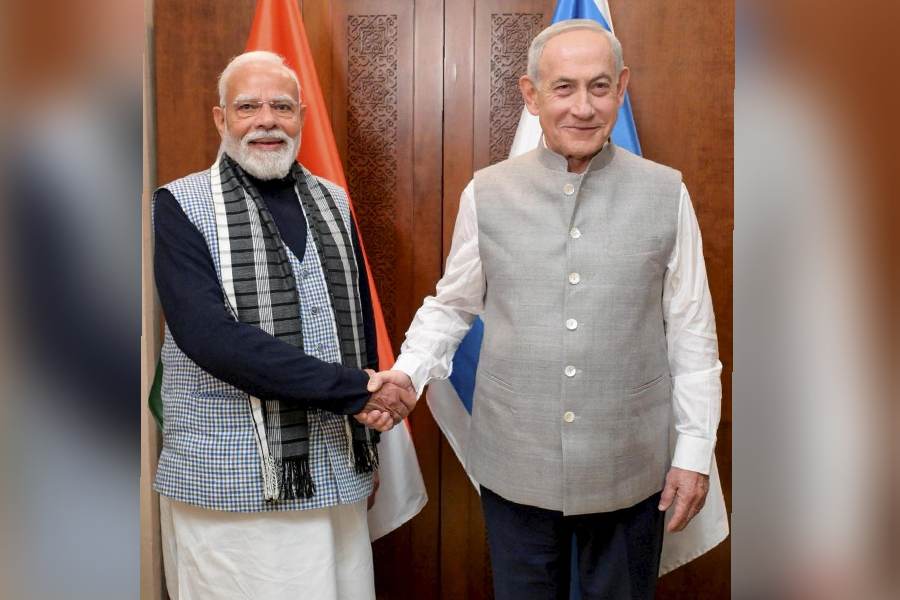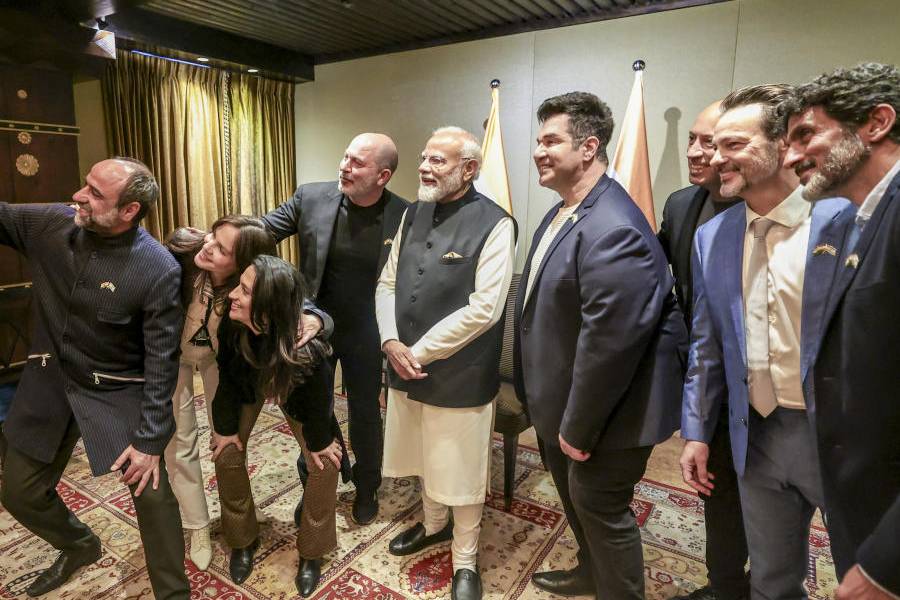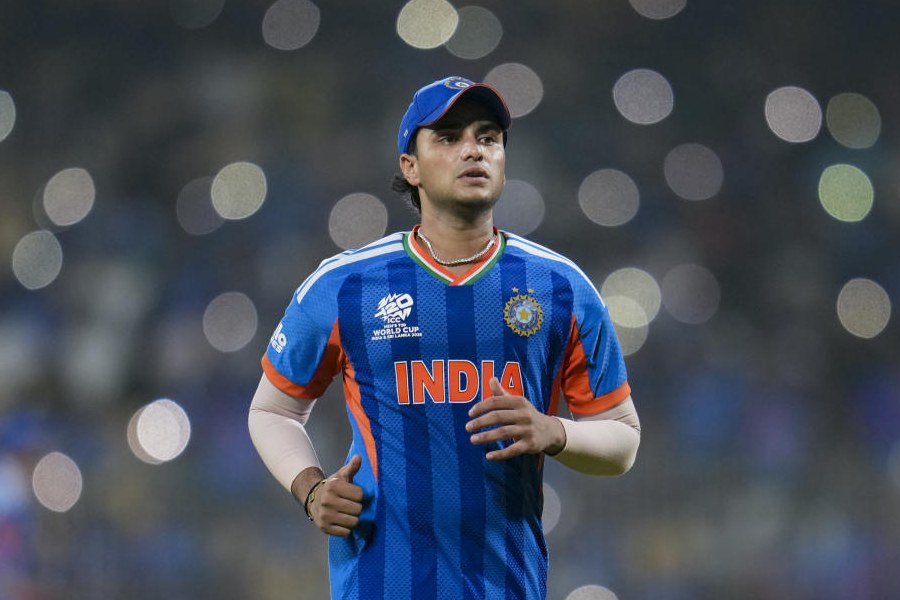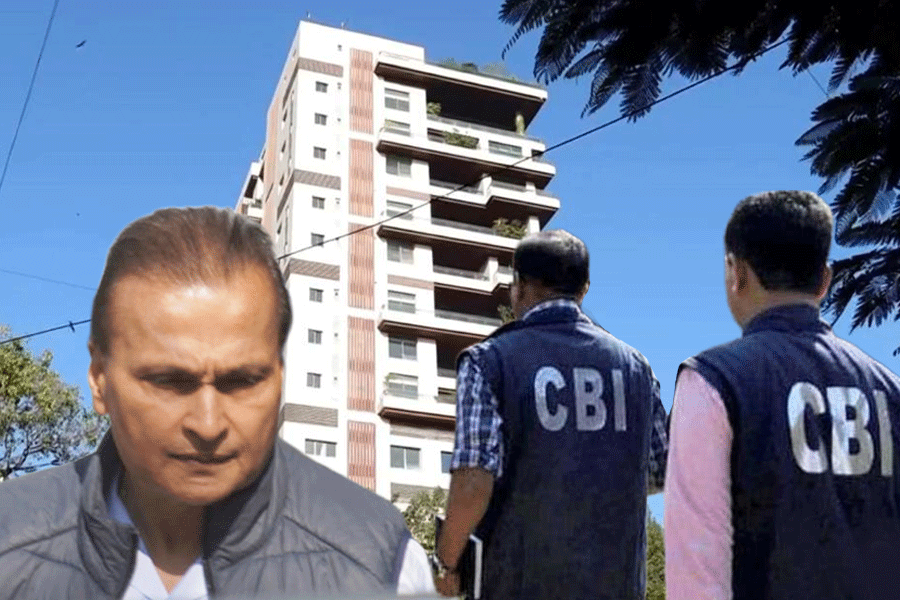 |
In his sprawling living room in suburban Mumbai, Ashok Banker appears to be gathering ammunition for a bestseller on the war an author has to wage to get his book published. “It’s a caste system where the brahmins are the editors and agents. And the authors who play along with them become the kshatriyas, who carry their flags into battle; the others are treated as low castes and untouchables,” says the novelist.
Banker, whose new book Gods of War is just out, knew what it was to be a pariah in the world of publishing at the age of 15 when he walked into a publisher’s office in school uniform and with a manuscript in hand. He had met with blank stares then. But today things are vastly different for the 45-year-old Mumbai-based writer who likes to describe himself as a “reader who likes to write”. His soon-to-be published book — The Valmiki Syndrome — had five publishers “bidding” for just the book proposal.
But getting a book published has not always been this easy. “It is not always possible for me to get a publisher without completing a book,” says the boyish-looking writer. “Whenever I’ve written something, it’s always been a book that nobody wanted to publish or couldn’t understand why I was writing it. I’ve actually had rejection slips from editors saying, ‘We loved the book, fantastic writing, we know you have a readership, but we can’t figure out how to market it,’” he says.
Ironically, of all his books, his bestseller, the Ramayana series, was the hardest — “almost impossible” — to sell to a publisher. His old publishers, who had brought out some of his earlier books successfully, “presumably dumped” the manuscript he’d sent them. “The other editors, too, didn’t bother to get back to me. One major editor responded, saying that her publishing house did not publish crime fiction — which clearly showed that she hadn’t even read my two-paragraph summary of the book.”
So Banker sent it abroad to a few publishers and an agent, and it got snapped up. Within a year or two, its British and American editions were out. “Suddenly, it was the most talked about book,” he says. “Since the ‘great white man’ had brought my work here on a painted elephant, I became the flavour of the season. But when the same brown fellow had tried to send the same book out, nobody even looked at him. Look at the kind of coverage that William Dalrymple — a foreigner writing about India — gets and compare that with what an average Indian author gets. It is evident that we are judging authors by the colour of their skin and their international acceptance.”
For a long time, Banker believed that writing was a rich person’s game. He still does. “In Mumbai, every Malabar Hill housewife has a novel by her bedside, which she’s going to publish some day — simply because those are the kind of people who have the wealth to pursue literary activities. They have the contacts — they’re probably having lunch and dinner with publishers,” he says.
His own quest to be a writer started very early. At the age of five he put away children’s books and took to his encyclopaedia. “That’s probably where I got my fascination for mythology,” he says. Books were also his route to understanding the adult world, he adds.
His parents’ marriage proved to be short-lived. His father was a Gujarati and his mother a product of a Sri Lankan Dutch Burgher and a Scot-Irish mother. Mother Sheela’s second marriage to an actor also did not last too long. So Banker was raised by his mother and grandmother — “two very strong women who did not need a man to define them,” he laughs.
When nobody was willing to publish the teenaged Banker’s first book of poems, called Ashes in the Dust of Time, in 1979, it was his grandmother who footed his publication bill — then a princely sum of Rs 800 for a batch of 500 copies.
While most others laughed when nine-year-old Banker insisted that he wanted to be a writer, his mother was the one who encouraged him. “She thought I could make a living from it,” says Banker.
When 14-year-old Banker’s poems were first published in Mumbai eveningers in the late Seventies and early Eighties, his mother, unhappy at the idea of her son being paid nothing for them — “would say that they should have paid me Rs 10,000,” he laughs.
But clearly, Banker has come a long way since then. Though he has had a fair bit of publishing success, he continues to have a less than flattering opinion about publishers. “What many readers don’t know,” says Banker, “is that publishers look at publishing only as a business, and not out of any love for books. It is very unfortunate that it is all market-driven. Everything is run by pseuds.”
And the trouble is, he adds, that there are enough good writers, in America especially, who will tailor their work to meet that market. “This blocks writers who are writing simply from their own experience or vision.”
He is no less scathing about editors, who, he says, mostly occupy themselves with marketing, discussing sale strategies or deciding cover designs. For them, the author is merely seen as the supplier. “If they don’t like the way you’re doing the book, they don’t have any patience. They’re a ‘divorce in five minutes’ kind of people. They say, ‘to hell with this person. Let’s get someone else to do that book.’ The book is more important.”
In America, Banker says, publishers “clone” authors to keep the sales charts up. The situation is not as grim in India or Britain — “where we have a lot of editors who respect authors and understand that they are the mainstay of the business,” he says. “In India they don’t say, ‘Shobhaa Dé’s books sell 20,000 copies in hardcover, so let’s market five writers, who write like her and are all as presentable.” While the consumer in America is “foolish enough to buy 10 more John Grishams, in India we have a little more sense,” he adds.
Banker feels that Indian publishers are keen to publish books that have ingredients of suspense or the supernatural. “Books like Stephanie Meyer’s the Twilight series — with elements of romance, the supernatural and suspense — which sold a lakh-and-a-half copies in India, are what I believe publishers are eagerly eyeing today,” Banker says.
“People want to be made to feel that they’re not just normal people leading normal lives — that there are vampires attacking, werewolves on the loose and angels watching over. We want to believe that there is a larger picture, a greater hand at work. People are afraid of the idea that this may be all there is. The day of the individual being solely responsible for his or her fate seems to have gone.”
For Banker personally, writing is a very solitary activity. “There is very little time left for writerly pursuits or for going to seminars, which are often not about writing, but plain gassing. It’s the equivalent of a junket for a journalist,” he says.
His latest book is about the end of creation. Five people from different parts of the world — America, Pakistan, China, Japan, India — are selected to appeal to the almighty to give humanity one last chance.
His fictional characters, he insists, are not fashioned from a particular person. “I do not look at them as characters but people who exist in an alternative world,” he says.
For Banker, that other world is perhaps more real than the so-called real one.










